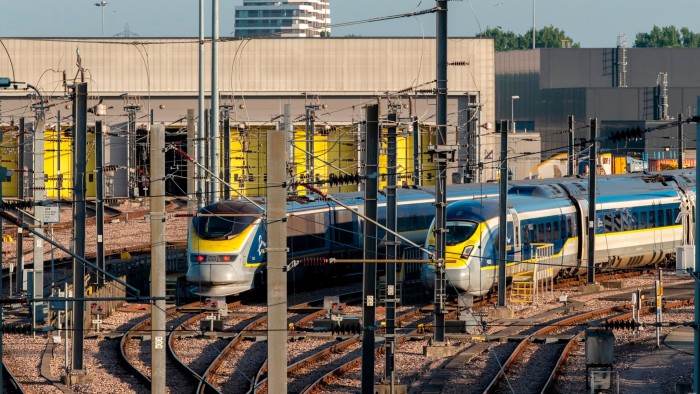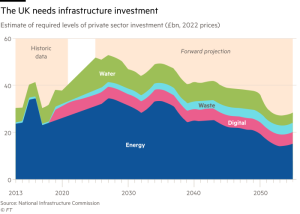Dispute over London depot threatens plans to break Eurostar monopoly

Unlock the Editor’s Digest for free
Roula Khalaf, Editor of the FT, selects her favourite stories in this weekly newsletter.
Plans by operators including Sir Richard Branson’s Virgin Group to launch new cross-Channel rail services that would rival Eurostar have been held up by a dispute over access to an east London rail depot.
Evolyn, a Spanish-led consortium backed by the largest shareholder in Mobico, formerly known as National Express, is also one of several companies exploring new services linking the UK and mainland Europe, in what would be the most significant challenge yet to Eurostar’s 30-year monopoly.
Virgin and Evolyn told an industry event at the Houses of Parliament on Tuesday that their plans to run high-speed trains from London to Paris and other European cities had been delayed because Eurostar had not agreed to allow access to its train maintenance depot in east London.
The Temple Mills depot is leased by Eurostar and is the only place to park and maintain high-speed cross-Channel trains in the UK. Under UK rail regulations, any operator should be granted access if there is space.
Evolyn and Virgin Group have appealed to the Office of Rail and Road, the rail regulator, which is investigating whether there is capacity at the depot to handle more trains, to intervene.
“The incumbent has some vested interest in making the process complicated,” said ORR chief executive John Larkinson, who has the power to force Eurostar to provide access. “It needs to be a fair process and evidence-led.”
Neither Virgin nor Evolyn has ordered trains yet, but the two are viewed as the most credible potential challengers to Eurostar because of the amount of time and money they have already invested in preparations.
Evolyn chief Jorge Cosmen said the launch process for the Spanish-led consortium would cost about £1bn and had “taken longer than we would have liked”.
The company has spent 18 months trying to gain access to the depot, and Cosmen said its investors and lenders were demanding “clarity”.
Phil Whittingham, head of Virgin Group’s trains business, said there was “no point” in the company buying trains without access to the maintenance depot. “We do believe there is capacity there,” he said.
But Eurostar said it had “set out a process” to allow access to Temple Mills, although it also warned that this relied on capacity. The company added that it had offered an “independent capacity study” and was engaging with the regulator on the issue.
Eurostar previously said it wanted to buy up to 50 new trains itself and was also considering more international routes from London.
Plans for new operators to enter the lucrative market and challenge Eurostar have been held up by logistical hurdles, including finding space at London St Pancras rail station, and the complex regulatory process to certify new operators to run trains through the Channel Tunnel.
Industry executives believe several factors have combined to make starting new services viable, although they have cautioned that it would still take at least five years for them to launch.
The EU has liberalised its cross-border rail services, leading to new competition on intercity lines, while new high-speed trains developed by French manufacturer Alstom have been designed to comply with the tunnel’s safety rules.
Tunnel operator Getlink has also simplified its safety rules as part of efforts to encourage more trains to pay to use its tunnel, which is at present running at just half its potential capacity. It has offered new entrants €50mn in support for new routes.
Getlink chief executive Yann Leriche said regulations were “clear” that the depot was part of an “open access” network that should be open to other companies.
“Eurostar are protecting their business, which is to be expected,” he told the Financial Times. “One thing we need is speed of execution. It is costly to launch a new service.”
#Dispute #London #depot #threatens #plans #break #Eurostar #monopoly




